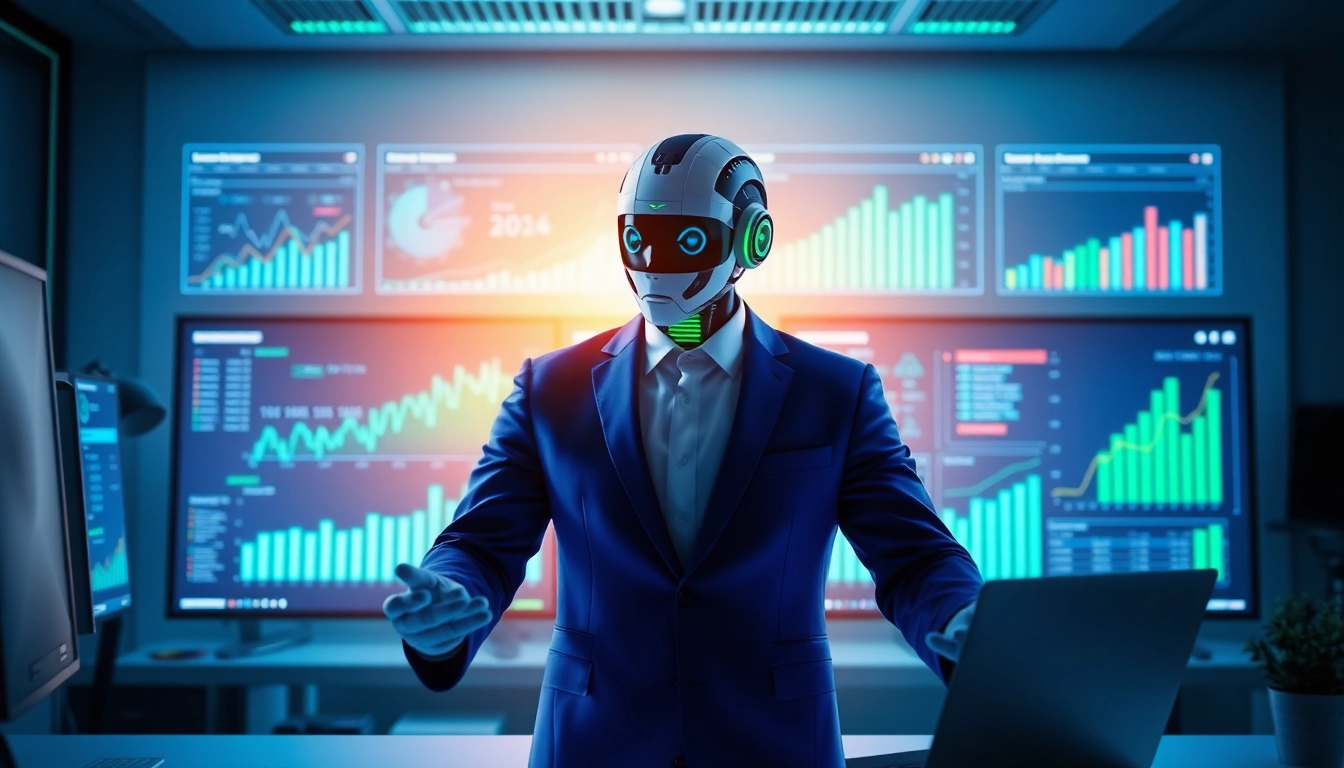Understanding AI Marketing Agents
Definition and Functionality
AI marketing agents are essentially software tools designed to automate specific marketing tasks through the application of artificial intelligence. These agents have capabilities that range from analyzing consumer data to generating personalized marketing content, executing campaigns, and optimizing various aspects of marketing strategies. They function with a degree of autonomy but still require human oversight to ensure decisions align with broader business goals and ethical standards. AI marketing agents can significantly reduce the workload on marketing teams, allowing human professionals to focus on strategy and creative execution instead of mundane tasks fraught with manual intervention.
How They Automate Marketing Tasks
The automation of marketing tasks through AI agents relies on advanced algorithms and machine learning techniques. These tools can do everything from customer segmentation and lead scoring to market trend analysis and content creation. For instance, AI marketing agents can analyze customer behavior patterns to create highly targeted advertising campaigns that resonate with specific audiences. By utilizing data analytics, these agents help marketers identify which strategies are most effective, enabling them to refine their efforts continually. Automated email marketing, social media management, and campaign optimization are just a few of the diverse functionalities these intelligent tools can offer.
The Role of Human Oversight
While AI marketing agents can perform many tasks independently, human oversight is vital to maintaining quality control and ensuring that marketing strategies resonate with target audiences. This oversight includes monitoring AI-driven campaigns to ensure they are functioning effectively and ethically. Marketers are responsible for understanding the data that these agents produce and making informed decisions based on their findings. Additionally, a human touch is often necessary for establishing brand tone, addressing nuanced customer queries, and cultivating genuine client relationships that automated systems may overlook.
Popular AI Marketing Agents in 2025
Top Tools and Their Features
As we look toward 2025, several AI marketing agents stand out for their advanced features and capabilities. Tools like ZBrain AI Agents and Keenfolks are making waves, allowing businesses to streamline their processes and enhance precision in targeting. These tools are particularly effective in leveraging big data for customer insights, campaign performance tracking, and automated marketing strategies.
Case Studies of Success
Many companies are successfully utilizing AI marketing agents to supercharge their campaigns. A notable example is Coca-Cola, which has integrated AI into its marketing efforts, allowing for more precise targeting and improved customer engagement. The results showed a considerable increase in conversion rates and overall campaign effectiveness. Similarly, businesses that adopted AI-driven solutions for social media marketing saw engagement rates soar due to the personalization and timing of their messaging.
Comparisons to Traditional Marketing Strategies
When juxtaposed with traditional marketing methods, AI marketing agents offer enhanced speed, accuracy, and efficiency. Traditional marketing strategies often rely heavily on human intuition and manual processes, which can be time-consuming and less responsive to real-time data. In contrast, AI agents analyze vast amounts of data in seconds, allowing teams to pivot strategies based on instant feedback. This level of responsiveness ensures that marketing efforts remain relevant and competitive in a rapidly evolving marketplace.
Benefits of Integrating AI in Marketing
Improving Personalization
One of the most significant advantages of utilizing AI in marketing is its capacity to enhance personalization. AI algorithms can analyze user data to determine preferences and behaviors, enabling businesses to deliver tailored marketing messages. The result is a more engaging customer experience that significantly increases the likelihood of conversion. For example, Netflix and Amazon employ AI-driven recommendations based on past viewing or purchase history, maximizing engagement and customer satisfaction.
Enhancing Data Analytics
AI excels in processing vast datasets and extracting actionable insights, which traditional analytics tools may overlook. By leveraging AI for data analytics, marketers can gain deeper visibility into consumer behavior, predict trends, and make informed decisions. This capability aids in shaping future marketing strategies and automating data analysis to showcase campaign effectiveness without overwhelming marketing teams. Real-time analytics also allow marketers to adjust tactics on the fly, optimizing spend and resource allocation dynamically.
Driving Efficiency and Cost Savings
Integrating AI marketing agents into campaigns can result in substantial cost savings and operational efficiencies. By automating repetitive tasks and streamlining workflows, businesses can reduce the need for extensive manpower, leading to lower operational costs. Additionally, AI helps minimize error rates, optimizing marketing spend, and ensuring that resources are directed toward the most effective campaigns. The cumulative effect is a more effective marketing approach that allows businesses to maximize their return on investment.
Challenges and Considerations
Implementation Hurdles
Transitioning to AI-driven marketing can present challenges, particularly for organizations unfamiliar with these technologies. Common hurdles include a lack of technical know-how, inadequate data infrastructure, and resistance to change within teams. Companies must invest in training and resources to ensure that marketing professionals are comfortable with AI tools. Additionally, a phased implementation can help ease the transition, allowing teams to gradually adapt to new technologies.
Ensuring Ethical Use of AI
As businesses increasingly rely on AI, ethical considerations should remain a priority. Issues related to data privacy, security, and potential biases in algorithms can have significant implications. Marketers must ensure transparency and compliance with regulations like GDPR. Establishing ethical guidelines for AI usage within marketing practices is crucial to maintaining consumer trust and brand integrity, particularly as awareness of data privacy continues to rise.
Measuring ROI of AI Solutions
Measuring the return on investment (ROI) from AI solutions is complex, as it often involves both quantitative and qualitative metrics. Marketers should develop clear, measurable goals that align with their AI marketing integrations, tracking performance through established KPIs. Metrics such as engagement rates, conversion rates, and customer lifetime value are essential in evaluating the effectiveness of AI tools and justifying further investments in technology. Regular assessment of these metrics allows businesses to pivot strategies and maximize their ROI continually.
Future Trends in AI Marketing
Technological Advancements to Watch
The landscape of AI in marketing is evolving continually, with emerging technologies promising even more innovative solutions for marketers. Trends such as enhanced natural language processing (NLP) capabilities, the integration of augmented reality (AR) in marketing campaigns, and greater use of chatbots and virtual assistants are on the rise. These advancements will enable more immersive and engaging marketing experiences, fostering deeper connections with consumers.
Predictions for Market Evolution
As AI technologies mature, predictions indicate that marketing will become increasingly data-driven and personalized, enabling hyper-targeted communications and product offerings. The reliance on AI-driven insights is expected to grow, changing how brands interact with consumers. The customer journey will be more seamless, and anticipatory marketing will become the norm as AI continues to evolve. Marketers will be called to stay ahead of trends, adjusting their strategies in accordance with real-time data.
The Growing Importance of AI Marketing Agencies
With the rapid adoption of AI tools, AI marketing agencies are becoming increasingly valuable to businesses intent on leveraging these technologies. These agencies harness AI capabilities to deliver impactful, data-driven marketing strategies tailored to clients’ unique needs. As the demand for expertise in managing AI marketing tools surges, such agencies will play a critical role in enabling businesses to navigate this complex landscape effectively. Companies seeking to implement AI strategies will likely turn to these specialists for guidance and support.



